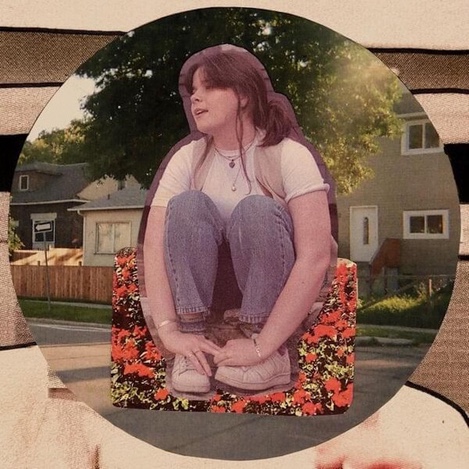“[O]n a bike by yourself, there’s a cool breeze on your face and you’re looking back on your whole life, considering the entire world and everything that everything means,” is the best way to listen to their latest coming-of-age album, claims Canadian indie rock singer-songwriter Leith Ross. Ross first grew in popularity with the release of their 2022 single, “We’ll Never Have Sex.” This sweet yet somber song captured the for-you-pages of TikTok users all over the world. Reaching over 171 million streams on Spotify, this song would not be the last of Leith Ross’ songwriting skills that the world would see.
On September 19, 2025, Ross graced our ears with their sophomore album “I Can See The Future.” Each of the 13 tracks describes a different aspect of growing up. Ross blends the pains of growing up and learning to let go with the idea of finding a new place to call home. “Terrified” brings an upbeat rhythm with a hopeful bassline to the album, adding an almost ironic contrast to the lyrics about being frightened about the uncertainty that life throws at you. Immediately after this track, the song “Home” casts a gloomier, deeper worry for the future. Ross dives into the daunting challenge of finding home after moving out from the safety of your parents’ house and away from friends. Suddenly, the security you once felt is stripped away, and you are left to navigate life all by yourself. The mix of sweet tones and use of melancholy lyrics brings to life the experience that many college students are going through at this exact moment.
The oldest track on the album, “Grieving,” was written in 2023 after the loss of their grandpa. It brings a light-hearted twang to the heavy topic of losing a loved one while shedding light onto how “grief is love run backwards.” These lyrics call to attention the common, though unfortunate, phenomenon of loving people more after they’re gone.
In a press conference about their sophomore album, Ross remarked, “I’m never not going to write a coming-of-age record. Whether that age be 27, 35, [or] 52. I’m always gonna be writing about some coming-of-age.” Ross’ relatable coming-of-age genre, despite being written at 27 years old, brings solace to their listeners who may also be struggling to navigate life. No matter your age, “I Can See Into The Future” offers supportive and empathetic songs. Other tracks on the album, like “Point of View,” “Stay,” and “I Love Watching You Eat Dinner,” bring listeners through the feelings of love and heartache by using a mix of strings and the classic Leith Ross rawness. The album ends with the title track, “(I Can See) The Future.” This song brings a lighthearted, hopeful tone to wrap up all the worries about life. They sing of seeing flowers everywhere and everyone back home, instilling a hopeful tone for a future world they are currently striving to create.
“I Can See The Future” guides listeners through the ups and downs of growing up. It almost encapsulates a panic attack in the perspective of a young adult, from the weight of everything on your shoulders and the pains of love, to the warm sunshine after the storm and the realization that everything will eventually work out. Each track follows no strict format, like thoughts on a page strung together to create the work of art that “I Can See The Future” is. Whether or not you’re still figuring out life, this album makes you feel seen, heard and never alone, and it deserves a listen from everyone.



